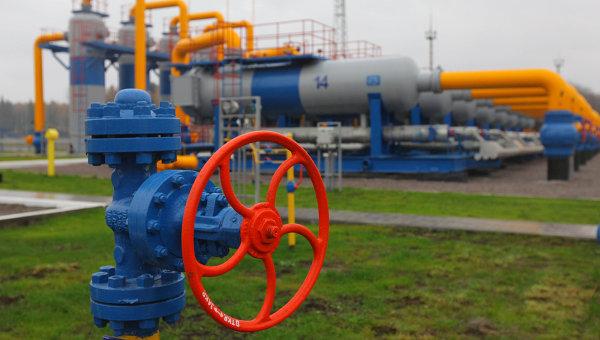
RUSSIA DIVIDED EUROPE

Europe's foreign ministers will meet on Tuesday amid mounting signs anti-Russian hardliners are gaining ground for tougher sanctions against the Kremlin because of increasing anger over Ukrainian separatists' handling of the MH17 crash site.
Britain, France and Germany put Vladimir Putin on notice during a flurry of calls on Sunday, warning the Russian president that they were prepared to impose harsher sanctions if it did not help establish a safe environment to recover bodies and investigate the MH17 crash.
Although sanctions hawks have been buoyed by international outcry over the downing of a civilian passenger plane, it remains unclear whether the disaster will be the "wake-up call for Europe" envisaged by Barack Obama, the US president.
The longstanding divisions over how to penalise Russia for its role in the Ukraine crisis remain and Europe lags behind the six rounds of US sanctions, both in breadth and severity.
Some differences have narrowed and pro-sanctions leaders such as British premier David Cameron see resistance from Paris and Berlin fading. But Europe remains far from united on whether to target Mr Putin's inner circle, ensnare Russian energy groups, and move to some form of arms embargo.
These differences will probably come to the fore on Tuesday, when EU foreign ministers meet for the first time since the crash, armed with a recently enhanced legal mandate that allows them to target a broader range of individuals and companies. There are no preparatory meetings planned on Monday, giving the gathering an unpredictable edge.
"What we need to do now is use the sense of shock, the sense of outrage, to galvanise opinion behind a more robust stance," Philip Hammond, the UK foreign secretary, told the BBC, adding that Russia was in danger of becoming a "pariah".
During their calls on Sunday, François Hollande, French President, German Chancellor Angela Merkel and Mr Cameron found easy agreement on a first priority: recovering the deceased and allowing investigators to work unimpeded.
The Elysee said the leaders agreed EU foreign ministers would "draw the consequences" at their Tuesday meeting if Mr Putin did not use his influence to support the recovery work. Downing Street said the ministers "should be ready to impose further sanctions".
Yet underlying the different points of emphasis, Berlin did not mention sanctions in a statement released late on Sunday. A spokesman for Ms Merkel noted the "intolerable situation" at the crash site but stressed her efforts to encourage Mr Putin to resume talks with Kiev.
Should there be the political will for an immediate escalation of sanctions, one option Mr Hammond raised was "broadening the number of individuals who are subject to sanctions to include the so-called crony group around President Putin".
This revives a months-old demand from Britain, Poland and the Baltic states to hit the close circle around Putin – an escalation previously opposed by a majority including France, Germany and Italy, who feared it would backfire and hurt diplomacy.
"The big issue is still the Kremlin cronies," said one senior EU diplomat involved in the talks, who added he hoped the airline incident would mean "we can at least do that." Other officials are doubtful the tragedy in the skies over Ukraine will decisively shift the debate.
Along with penalties on individuals, foreign ministers will also discuss possible economic curbs on specific companies. One diplomat speculated that this could include the Russian manufacturer of the SA-11 surface-to-air missile system suspected of bringing down the MH17. But given the EU reliance on Russian gas, ministers will be more circumspect in hitting energy groups.
More contentious still is the question of whether to expand the scope of potential sanctions to sectors of the economy, so-called "level three" measures. At a summit last week, France and Germany resisted calls from Britain and Poland to impose an arms embargo.
Britain is preparing to renew those demands on Tuesday against resistance from Paris, which is worried the downing of the MH17 will swing international attention back to France's controversial €1.2bn contract to sell two Mistral-class state of the art helicopter assault ships to Russia.
A French official said further "phase two" sanctions – which involves limiting measures to specific individuals and companies rather than sector-wide measures – could be imposed but stressed that it was not yet "the moment" to move to further, broader sanctions. "For the moment the question of the Mistral contract does not arise," the official said. "For now the contract is going ahead."
With this in mind, Mr Cameron has tailored his approach to back an embargo on only new arms export licences to Russia, a formulation that leaves the French contracts unscathed.
Even so Francois Heisbourg, special adviser at the Foundation for Strategic Studies in Paris, said that the French position could change. "The notion that the ships were deliverable was already questionable. [The MH17 incident] makes them undeliverable morally, politically and increasingly economically," he said.
In a sign of diplomatic momentum moving towards tougher sanctions, Norbert Röttgen, chairman of the Bundestag committee on foreign affairs, told the Welt am Sonntag newspaper: "I fear that more far-reaching economic sanctions cannot be prevented."
ft.com


